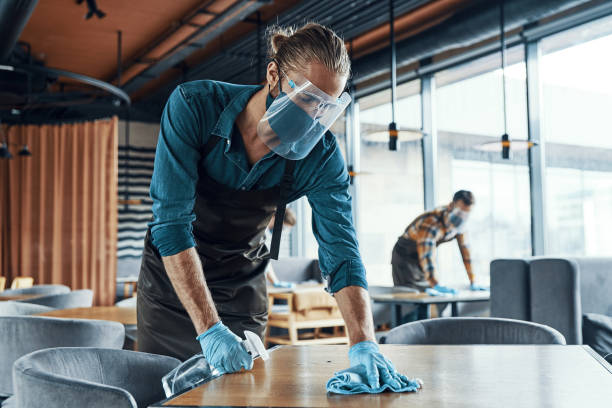Cleanliness is often taken for granted in our everyday environments. When we walk into a bank or dine at a restaurant, we expect the space to be clean and inviting. But behind the scenes, a dedicated workforce makes that possible. These cleaning professionals play a vital role in maintaining hygiene and safety standards. Their work often goes unnoticed, yet it is essential to keeping businesses running smoothly.
The Backbone of Daily Operations
Service businesses rely on consistent cleanliness to meet customer expectations. Whether it’s food, finance, or retail, the appearance and hygiene of a location impact customer satisfaction. Clean floors, sanitized surfaces, and organized spaces don’t just happen—they are the result of hard work.Cleaning staff often start before opening hours or continue long after closing. Their schedules are built around minimizing disruption to customers. This quiet but essential work is the backbone of every successful service operation.
Safety and Compliance Through Routine Care
Clean environments are safer environments. Spills, dirt, and clutter can lead to slips or health risks. In many industries, health and safety regulations require strict cleanliness standards. Professional cleaning staff ensure these rules are followed. They use specific procedures and tools to eliminate germs and prevent cross-contamination. Their attention to detail helps stop the spread of illness, especially in high-touch areas. Without their expertise, many businesses would struggle to stay compliant with local laws.
Training and Professionalism Matter
The hygiene workforce is more skilled than many realize. Proper training is needed to use cleaning agents, handle waste, and manage equipment. These workers must know how to work efficiently in different settings without interrupting daily business. They often undergo safety courses and learn about chemical handling, floor care, and disinfection protocols. This knowledge helps them protect themselves and others. Their professionalism ensures that standards are met, and customer trust is maintained.
A Key Role in Hospitality and Dining
Dining spaces must meet strict hygiene standards. Clean kitchens, sanitized tables, and spotless restrooms are not optional—they are expected. Customers judge restaurants on how clean they feel, even if they never see the kitchen. Restaurant cleaning crews work hard to maintain food-safe environments. Their efforts directly impact health inspections, reviews, and repeat business. From wiping menus to scrubbing behind stoves, these workers help create safe and enjoyable dining experiences.
Cleanliness Builds Trust in Financial Spaces
In banks and other financial institutions, hygiene also matters. These are places where people discuss sensitive topics and manage their money. A clean, orderly space creates a feeling of security and professionalism. Bank cleaning professionals are responsible for keeping lobbies, counters, ATMs, and offices spotless. They help maintain customer confidence through their behind-the-scenes efforts. A well-kept bank shows that attention to detail is a company-wide priority.
Unseen, But Not Unimportant
Cleaning professionals often go unnoticed, but their work is essential. Without them, service sectors would struggle to operate. Their role supports public health, employee satisfaction, and customer loyalty. Businesses that invest in professional cleaning teams benefit in the long run. Clean environments lead to better reviews, higher employee morale, and increased trust. These outcomes directly support the success of the business.
Supporting and Valuing the Hygiene Workforce
It’s time to recognize the people who make clean spaces possible. Providing fair wages, training, and proper tools is key to keeping this workforce strong. Their value goes beyond cleaning—they help build the reputation of every service-based company. By acknowledging their importance, businesses can foster a culture of respect and responsibility. Clean spaces don’t happen by accident—they are the result of effort, planning, and dedication.
Conclusion
The hygiene workforce is essential to the service industry. Their skills, reliability, and attention to detail keep businesses safe, compliant, and inviting. Though they may work in the background, their impact is felt by every customer and employee. Service sectors must continue to support and recognize these vital workers. They are not just cleaners—they are protectors of public health and contributors to business success. Without them, daily operations simply wouldn’t run as smoothly.









